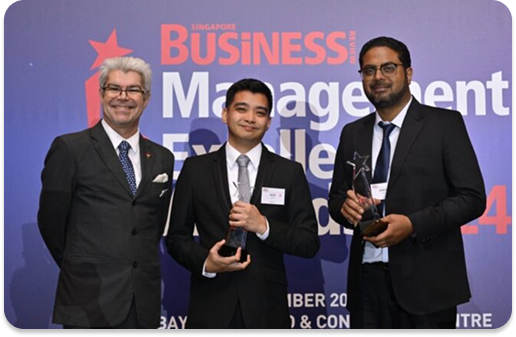With the Business Process Outsourcing (BPO) industry poised to reach a market volume of US$0.49 trillion by 2029, businesses are on the brink of a transformative era, increasingly relying on outsourced services for cost reduction and enhanced operational efficiency.
This growing dependence underscores the importance of understanding this sector’s specific terminologies.
Our glossary of 108 essential BPO terms is a practical resource for those venturing into partnerships with BPO firms for the first time, and a valuable reference for veterans looking to deepen their expertise in the field.
Table of Contents
General BPO Terms And Jargon
Here is a list of BPO terms that are used broadly across various outsourcing categories:
1. Analytics: The ability to discover and communicate meaningful patterns in data; a family of services applied throughout many BPO services to enhance process efficiency and decision-making.
2. Business Continuity: Planning and preparation aim to enable an organization’s continued operation in case of key incidents or disasters and restore it to a state of operation within a reasonably short period.
3. Change Management: A structured approach for transitioning employees, teams, and organizations. This takes greater significance in the context of new processes or systems that would be introduced because of outsourcing.
4. Dashboard: Management information system that visually tracks, analyzes, and presents key data, metrics, and KPIs to analyze business, departmental, or process performance.
5. Due Diligence: A company research conducted by a possible buyer, especially in order to trace its properties and debts and the validity of its business.
6. Escalation Management: The process of handling issues that require intervention from higher-level authorities in an organization to resolve disputes or issues that are not manageable at an initial level.
7. Governance: The frameworks, roles, and processes that ensure security, conformity, and accountability in the outsourcing relationship.
8. Integration: The process of ensuring that various systems and software applications, potentially from different vendors, function together within an organization.
9. Key Performance Indicators (KPIs): Measurable metrics that effectively demonstrate the achievement of key business objectives are imperative for monitoring outsourcing outcomes.
10. Outsourcing Agreement: A formal contract that specifies the terms and conditions of the outsourcing arrangement, including services to be delivered, performance standards, and financial obligations.
11. Process Optimization: The discipline practiced in the BPO industry whereby a process is adjusted to optimize parameters without violating constraints.
12. Quality Assurance (QA): Ensuring that the delivered services meet the expected quality standards as defined by the outsourcing agreement.
13. Risk Management: The estimation and evaluation of financial risks. It involves the identification of procedures to avoid or minimize their impact.
14. Scalability: The capability of handling an increased workload or its capacity to increase in size to meet the demand.
15. Service Delivery Manager (SDM): A role that involves managing the delivery of services to clients, ensuring that the services meet the agreed-upon specifications.
16. Stakeholder Engagement: The process of involving individuals who may be affected by the decisions made by an organization or project in the decision-making process.
17. Transition Management: Managing the changeover from one service provider to another or from in-house processes to an outsourced provider, ensuring smooth operations throughout the process.
18. Vendor Management: Overseeing and managing one’s outsourcing providers, focusing on improving the execution and extracting the maximum value from the relationship.
19. Workflow Automation: The creation, implementation, and automation of processes governed by specific workflow rules, where business tasks, data, or documents are transferred between participants for completion per established procedural guidelines.
20. Zero Defects: A quality control approach that aims at the reduction of defects through continuous improvement.
IT Outsourcing (ITO)

ITO is a key category of BPO involving the delegation of an organization’s IT functions to external service providers. This encompasses services like software and web development, application support, network services, and hardware maintenance. Here are some BPO jargons under this category:
21. Application Service Provider (ASP): Companies that provide software applications and related services over the Internet.
22. Cloud Computing: Using online servers for storing, managing, and processing data instead of local servers.
23. Data Center Outsourcing: Contracting out all or parts of data center operations.
24. Disaster Recovery: Outsourcing solutions to protect data and ensure business continuity after earthquakes, floods, and breaches.
25. Infrastructure as a Service (IaaS): A form of online service offering high-level APIs that abstract the lower-level details of network infrastructure, enabling users to manage their computing resources over the Internet.
26. IT Support Services: External services that provide assistance with technology products such as computers, software, or mobile devices.
27. Network Management: Outsourcing the maintenance and administration of a company’s network systems.
28. Platform as a Service (PaaS): A type of cloud computing service designed for developing, executing, and overseeing applications without the complexity of building and maintaining the underlying infrastructure.
29. Software as a Service (SaaS): It’s a software distribution model where apps are hosted and maintained by a vendor or service provider and made accessible to customers via the Internet.
30. Virtualization: Creating a virtual version of something, including virtual computer hardware platforms, storage devices, and computer network resources.
Human Resources Outsourcing (HRO)

Companies outsource HR activities such as payroll, recruitment, training, benefits administration, and compliance management to external providers to reduce costs and improve efficiency.
31. Benefits Administration: Outsourcing the management of employee benefits such as health insurance, retirement plans, etc.
32. Compliance Management: Outsourcing legal compliance management concerning employment laws and regulations.
33. Employee Leasing: Contracting with an external organization to lease employees instead of hiring them directly.
34. Employee Relations: Managing the relationship between the employer and the employees by outsourcing HR functions that address workforce issues.
35. HR Consulting: External services providing expertise and advice on human resource policies and structures.
36. Payroll Outsourcing: Hiring an outside firm to handle all payroll-related activities.
37. Performance Management: Outsourcing is the process of ensuring employees meet their performance standards.
38. Recruitment Process Outsourcing (RPO): A form of business process outsourcing where a business transfers all or part of its recruitment processes to a BPO firm or external service provider.
39. Talent Management: Outsourcing the processes of recruiting, retaining, and producing talented employees.
40. Training and Development: Outsourcing educational programs designed to enhance the knowledge and skills of employees.
Finance and Accounting Outsourcing (FAO)

This includes outsourcing financial functions like accounts payable/receivable, bookkeeping, financial analysis, tax compliance, and budgeting.
41. Accounts Payable/Receivable: Outsourcing the management of money owed by customers (receivables) and money owed to suppliers (payables).
42. Audit Services: Outsourcing the examination of a company’s financial records to ensure accuracy and compliance.
43. Bookkeeping: Outsourcing the recording of financial transactions.
44. Budgeting and Forecasting: Outsourcing the processes of predicting future financial conditions and budget management.
45. Chief Financial Officer (CFO) Services: Outsourcing the tasks of a CFO to manage a company’s finances, financial planning, and financial risk management.
46. Financial Analysis: Outsourcing the assessment and evaluation of a company’s financial health.
47. Financial Planning: Outsourcing the long-term strategy of handling finances.
48. Risk Management: Hiring external services to manage potential risks to the company’s financial health.
49. Tax Processing: Outsourcing tax preparation and filing activities.
50. Treasury Services: Outsourcing the management of a company’s finances, including investments, debt, and liquidity.
Customer Interaction Services

Often referred to as call centers, this type of BPO handles customer interactions, including customer support, telemarketing, and customer feedback through various channels like telephone, email, and live chat.
51. Appointment Scheduling: Outsourcing the management of scheduling appointments for a business.
52. Automatic Call Distributor (ACD): This technology manages the routing of incoming calls to designated terminals or agents within a network, tailoring the assignment based on the caller’s requirements, the expertise of available agents, and additional defined parameters.
53. Calling Line Identity (CLI): This telecommunication service delivers the calling party’s number to the recipient’s phone display during the initial ringing phase or while the call is being established but before the recipient answers the call.
54. Customer Onboarding: The process of getting new customers familiar with a company’s products or services and ensuring they have a smooth start.
55. Customer Relationship Management (CRM): These are software platforms designed to streamline the handling of customer information, enhance sales management processes, provide valuable insights, connect with social media platforms, and improve internal communications among team members.
56. Customer Retention: Outsourcing strategies focused on keeping existing customers.
57. Customer Satisfaction Score (CSAT): A key performance indicator that tracks customers’ satisfaction with a company’s products or services, typically obtained through customer surveys post-interaction.
58. Customer Satisfaction Survey: Outsourcing the collection and analysis of customer feedback.
57. Customer Support: Outsourcing support services that handle customer inquiries, complaints, and support.
59. Email Support: Managing customer communications and service via email, addressing inquiries, and resolving issues.
60. First Call Resolution (FCR): The percentage of calls that the customer service representative can resolve without needing a follow-up call or referral to other sources of information.
61. Help Desk Services: Outsourcing the provision of information and support related to company products and services.
62. Inbound Calls: Calls received by a company from customers, typically for customer support or inquiries.
63. Interactive Voice Response (IVR): This technology enables computers to engage with users by interpreting voice commands and dual-tone multi-frequency (DTMF) signals entered through a keypad.
64. Live Chat Support: Online customer service that enables the customer to talk directly with a company representative in real time via a website interface.
65. Loyalty Programs: Managing customer loyalty programs that offer rewards to repeat customers.
66. Multichannel Support: Providing support through various channels such as phone, email, social media, and live chat.
67. Order Taking: The process of taking customer orders over the phone or online.
68. Outbound Calls: Calls made by the company to customers, usually for telemarketing, customer retention, or follow-up services.
69. Quality Monitoring: The practice of agents listening to and evaluating customer interactions to ensure quality standards and improve service.
70. Queue Management: Techniques and tools used to manage customer queues in call centers to minimize wait times and improve customer service efficiency.
71. Scripting: The use of a prepared script by customer service agents to ensure consistency and accuracy in customer interactions.
72. Social Media Management: Handling customer service and engagement through social media platforms, responding to queries, and managing company reputation.
73. Technical Support: Outsourcing support for technology-related products or services.
74. Telemarketing: Using telecommunications to market goods or services directly to potential customers.
75. Telesales: Direct selling or marketing of products and services to potential customers over the telephone.
76. Upselling and Cross-selling: Techniques used in customer interaction to encourage customers to purchase additional or higher-value items.
77. Workforce Management (WFM): Forecasting the number of agents required, scheduling agents, and managing staff to ensure the call center can meet service level agreements.
Legal Process Outsourcing (LPO)

It involves outsourcing legal processes, such as legal research, document review, contract management, and litigation support, to specialized service providers.
78. Case Management: The coordination of case files, including tracking and managing ongoing legal cases.
79. Contract Abstraction: Extracting key data and clauses from legal documents.
80. Compliance Services: Ensuring that companies meet regulatory requirements within their specific industries.
81. Due Diligence: Conducting investigations of potential investments or product development to ensure compliance with legal standards and regulations.
82. E-Discovery: Using electronic methods to gather and manage data that is required for legal processes.
83. Intellectual Property Services: Managing the filing and prosecution of patents, copyrights, trademarks, etc.
84. Legal Audits: Assessing a company’s legal and compliance status to minimize risk.
85. Legal Billing Services: Managing the invoicing and financial transactions associated with legal services.
86. Legal Drafting: Creating legal documents, contracts, and other legal communications.
87. Litigation Support: Assisting attorneys through litigation by managing document data and preparing legal arguments.
Knowledge Process Outsourcing (KPO)

KPO involves outsourcing core business activities that require significant domain expertise, such as business analytics, market research, financial consultancy, and engineering services.
88. Biostatistics: Application of statistics to a wide range of topics in biology.
89. Business Intelligence: Use of data to help organizations make business decisions.
90. Engineering Services: Outsourcing of specialized engineering tasks such as civil, mechanical, or electrical engineering.
91. Equity Research: Assessing the company’s financial health and stability to provide investment guidance.
92. Financial Research: Comprehensive analysis of financial markets, investment opportunities, and financial statements.
93. Market Research: Gathering and analyzing data about consumers, competitors, and market conditions.
94. Pharmaceutical R&D: Outsourcing of drug research and development activities.
95. Risk Management Consulting: Advising businesses on how to manage financial risk.
96. Technical Analysis: Providing technical solutions and consultations based on expert knowledge.
Procurement BPO
This type of outsourcing focuses on procurement and supply chain tasks, including vendor management, strategic sourcing, and contract negotiation.
97. Category Management: Organizing procurement into specific categories of spend to focus strategies and manage costs.
98. Supplier Management: Managing interactions with suppliers to foster effective relationships.
99. Contract Negotiation: The process of formalizing terms with suppliers.
100. Demand Planning: Forecasting procurement needs based on supply chain and market trends.
101. Strategic Sourcing: Finding the most efficient and cost-effective sources for goods and services.
102. Inventory Management: Overseeing inventory levels to balance demand and supply effectively.
103. Invoice Processing: Handling the flow of invoices from receipt, validation, and payment processes.
104. Purchase Order Management: Managing the creation, processing, and tracking of purchase orders.
105. Spend Analysis: Reviewing procurement spending to reduce costs, increase efficiency, or both.
106. Vendor Evaluation: Assessing vendors based on their price, quality, delivery, and performance.
Research Process Outsourcing (RPO)
Similar to KPO, this involves outsourcing research activities, particularly in scientific domains such as pharmaceutical research, biotechnology, and data analysis.
107. Bioinformatics: Using tools of computation and analysis to capture and interpret biological data.
108. Clinical Trials Management: Outsourcing the end-to-end process of managing clinical trials.
109. Data Collection and Analysis: Gathering and analyzing data to support research conclusions.
110. Experimental Design: Planning and structuring experiments to ensure valid and actionable results.
111. Literature Research: Comprehensive review and analysis of existing literature on specific topics.
112. Market Feasibility Studies: Evaluating new products or services’ market potential and viability.
113. Patent Research: Searching and analyzing patents to inform R&D strategies or investments.
114. Regulatory Support: Ensuring that products comply with all regulations and laws applicable to a given industry.
115. Scientific Research: Conducting scientific investigations and experiments in various fields such as chemistry or biology.
116. Statistical Research: Applying statistical methods to the experimental and observational study of data.
Conclusion About BPO Terminologies
Understanding BPO jargon does much more than expand your industry vocabulary—it’s about mastering the complex world of Business Process Outsourcing that covers a variety of sectors, from IT to legal services.
For those in need of top-tier BPO services, Gear Inc stands out as a leading provider. We offer call center solutions, live chat support, content moderation, and a whole lot more. We put together a team that works just for you.
We are committed to excellence and efficiency in every interaction, diligently crafted to meet the unique needs of each client. Contact us today!
Frequently Asked Questions About BPO Terminologies
Why Is It Important To Understand BPO Jargon?
Understanding BPO jargon is crucial for effective communication within the industry. It helps comprehend the processes, roles, and expectations involved, which is vital for anyone looking to work or partner with BPO firms.
What Is The Significance Of KPIs In BPO Engagements?
KPIs, or Key Performance Indicators, are crucial metrics that help both the client and the BPO provider monitor performance, measure success, and identify areas for improvement in the outsourcing engagement.
How Does A BPO Firm Ensure Quality And Compliance?
Quality and compliance in BPO are typically ensured through regular audits, adherence to international standards, certification (e.g., ISO, GDPR compliance), and continuous process improvements to align with client requirements.
What Is An SLA In The Context Of BPO?
An SLA, or Service Level Agreement, is a contract between a service provider and the client outlining the expected service delivery level. It specifies the metrics by which services are measured and the remedies or penalties should agreed-upon standards not be achieved.













